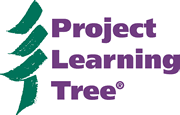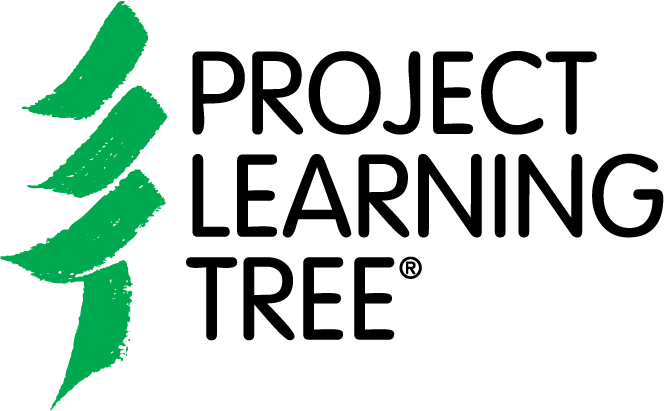May 12, 2016
Every summer, around the country, 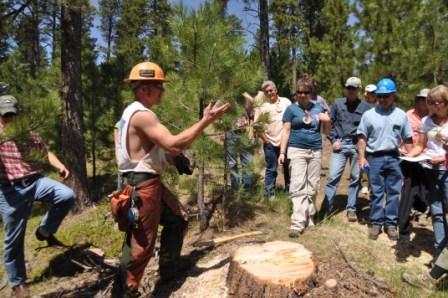 Project Learning Tree state programs offer educators the opportunity to tour their state’s forests and learn about forest management practices. These multi-day teachers’ tours and week-long forestry institutes immerse educators in the social, economic, and ecological aspects of sustainable forestry.
Project Learning Tree state programs offer educators the opportunity to tour their state’s forests and learn about forest management practices. These multi-day teachers’ tours and week-long forestry institutes immerse educators in the social, economic, and ecological aspects of sustainable forestry.
“This is not your typical classroom workshop,” stresses Rob Beadel, Arkansas PLT Coordinator with the Arkansas Forestry Association Education Foundation. “Our days are long and packed full of field activities.”
Teachers receive lesson plans and resources to use in their classroom, along with environmental education training on how to use forests to teach across many subject areas.
Some of these tours are free (including all meals, transportation and lodging) thanks to sponsors in each state who cover the costs. Some states charge a nominal fee, around $200. Participation is limited, usually between 25 to 35 participants and staff.
Both formal and non-formal educators may 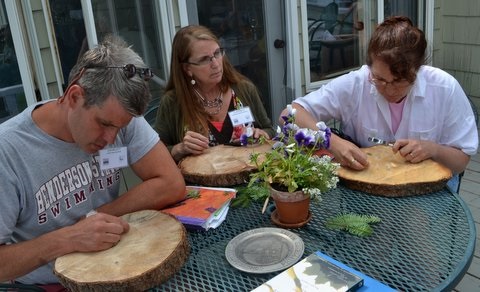 apply for a tour, although preference is sometimes given to full-time classroom teachers. In most cases, teachers can earn continuing education credits, college credits, or professional development credits from your school district.
apply for a tour, although preference is sometimes given to full-time classroom teachers. In most cases, teachers can earn continuing education credits, college credits, or professional development credits from your school district.
Applications are currently being accepted for programs this summer. Some state PLT programs offer several multi-day tours in different parts of the state. To find a tour in your state, check your PLT state program’s website.
A Balanced Approach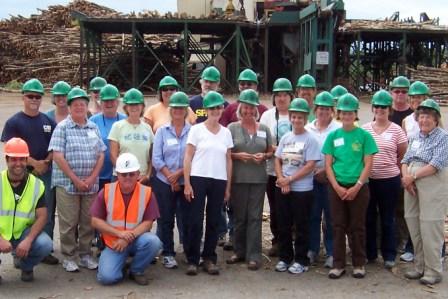
Consider spending a few days this summer touring the forests of your state, examining forest practices and the forest industry. Learn about the impact forests have on your state’s environment, economy, and quality of life. Engage in discussions about forest issues with natural resource professionals, community members, and other educators.
The goal of these tours is to provide K-12 teachers with knowledge, skills, and tools to effectively teach their students about forest ecology and forest resource management practices. They provide balanced, science-based education and an understanding of how decisions are made about management of forests and the natural resources upon which we depend.
Whichever program you participate i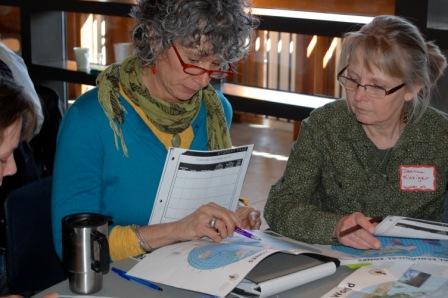 n, there’s a lot of time spent in the woods, meeting and learning from natural resource professionals in the field and seeing first-hand the work they conduct on a daily basis.
n, there’s a lot of time spent in the woods, meeting and learning from natural resource professionals in the field and seeing first-hand the work they conduct on a daily basis.
Educators in Oregon work together to design a forest-related classroom curriculum project using Project Learning Tree’s activities and lesson plans.
What Educators Can Expect
The focus of these tours is on the environmental, social, and economic benefits provided by the forests in your state.
- You’ll tour forest
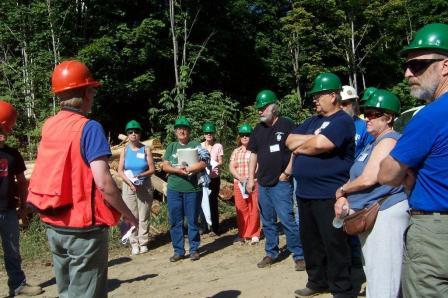 product manufacturing facilities, view wildlife conservation efforts, and harvesting and replanting operations.
product manufacturing facilities, view wildlife conservation efforts, and harvesting and replanting operations. - You’ll interact with foresters, biologists, loggers, technology specialists, and mill workers who care for forests and make products you use every day.
- You may see firefighters suit up in protective gear and watch a firefighting or prescribed burn demonstration.
- You’ll explore differing Educators in Maine take a walk in the woods during a Forests of Maine Teachers’ Tour and hear from foresters, loggers, and other natural resource professionals working in the fieldpoints of view on a range of forest issues—from water, to wildlife, recreation, biodiversity, habitat protection, fire ecology, and green buildings.
“I went on a Teachers’ Tour and it was a brilliant combination of learning, working, having fun, and meeting colleagues. We went deep into the woods to meet with loggers, forestry scientists, conservationists, energy specialists and pulp mill operators,” said one educator from Maine.
“One of the many new learnings for me as we toured these forested roads was how much attention is being paid to creating culverts under the logging roads that will allow the passage of salmon, brook trout and other water dwellers,” said Cathy Wolinsky who attended a Forests of Maine Teachers’ Tour. “Some of the culverts are taller than a person. The engineers talked about the efforts being made to develop designs and materials that will make culverts easier to build and more affordable. As teachers we started talking about how we could use this real issue as a design challenge in the classroom setting.”
Applying it to the Classroom
Science teacher Susan Linscott took this real-life design challenge to her students for a physics project. Students were required to answer a few essential questions such as:
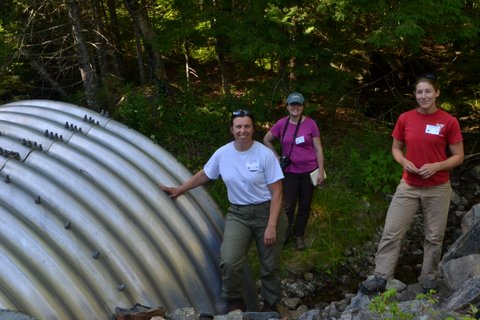 How is a stream crossing engineered and built to minimize the effects of applied forces and the transfer of momentum?
How is a stream crossing engineered and built to minimize the effects of applied forces and the transfer of momentum?- How is an engineered structure evaluated to determine the extent of its environmental and community impact?
Many ideas for hands-on learning experiences and class projects are discussed during a teachers’ tour. In addition,
- You’ll receive training in Project Learning Tree’s multi-disciplinary environmental education curriculum.
- You’ll receive lesson plans correlated with state academic subject area standards that help your students practice critical-thinking skills by exploring the complex issues involved in managing the natural resources on both public and private forestlands.
- You’ll have plenty of opportunity for networking and grade-level appropriate discussions on how to transfer what you learn back to the classroom.
- You’ll leave with abundant information and resources to explore sustainable forestry and related careers with your students.
What Educators Are Saying
“One of the most enjoyable 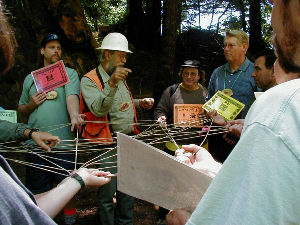 workshops I have ever attended and one of the most educational. I will use what I have learned and my students will benefit!” – Loretta Hargroder, Louisiana teacher
workshops I have ever attended and one of the most educational. I will use what I have learned and my students will benefit!” – Loretta Hargroder, Louisiana teacher
“The Teachers’ Tour was outstanding. The outdoor experiences, guest speakers, lodging, meals, every aspect was more than I expected. The woods industry, culture, people and personal experiences will all be carried back into the classrooms in many different ways. Thank you again for a top notch experience and all the resources. All professional development should be as well designed as these tours.” – Maine educator
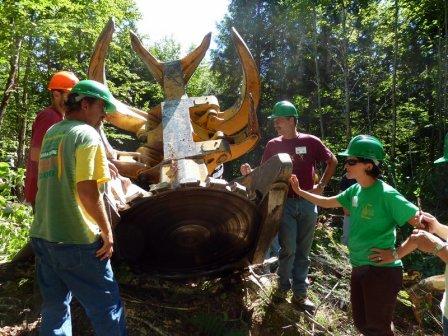 “I can tell that a lot of time, thought and consideration has gone into how the [California’s Forestry Institute for Teachers] program is structured. My knowledge and understanding of issues surrounding our forests has increased dramatically. I appreciated hearing from people in the field (loggers, forest service, researchers, environmentalists, park service, foresters, industry people, etc.) I feel better prepared to share what I know and to bring forestry to my students.” – California educator
“I can tell that a lot of time, thought and consideration has gone into how the [California’s Forestry Institute for Teachers] program is structured. My knowledge and understanding of issues surrounding our forests has increased dramatically. I appreciated hearing from people in the field (loggers, forest service, researchers, environmentalists, park service, foresters, industry people, etc.) I feel better prepared to share what I know and to bring forestry to my students.” – California educator
“The visits into the woods and mills were a wonderful experience that gave me a whole new perspective on forestry, and the dedication to stewardship by those working in and managing the forests.” – Martha Borden, Maine middle school teacher
Preparing the Decision-Makers of Tomorrow
America’s forests face a 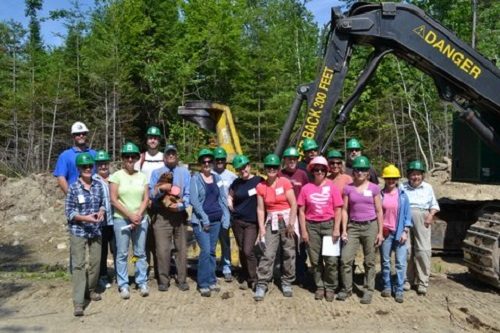 daunting array of threats that will require a new generation of leaders with top science, technology, engineering and mathematics (STEM) skills—and an awareness and appreciation for the natural world.
daunting array of threats that will require a new generation of leaders with top science, technology, engineering and mathematics (STEM) skills—and an awareness and appreciation for the natural world.
Consider joining PLT this summer on a rewarding multi-day professional development opportunity that’s outdoors and hands-on.
Be prepared to commit to an intense week of learning and fun! You won’t regret it. Educators who’ve been on one of these tours often describe it as an enriching “once-in-a-lifetime” experience.
Find a summer professional development program in your state.
